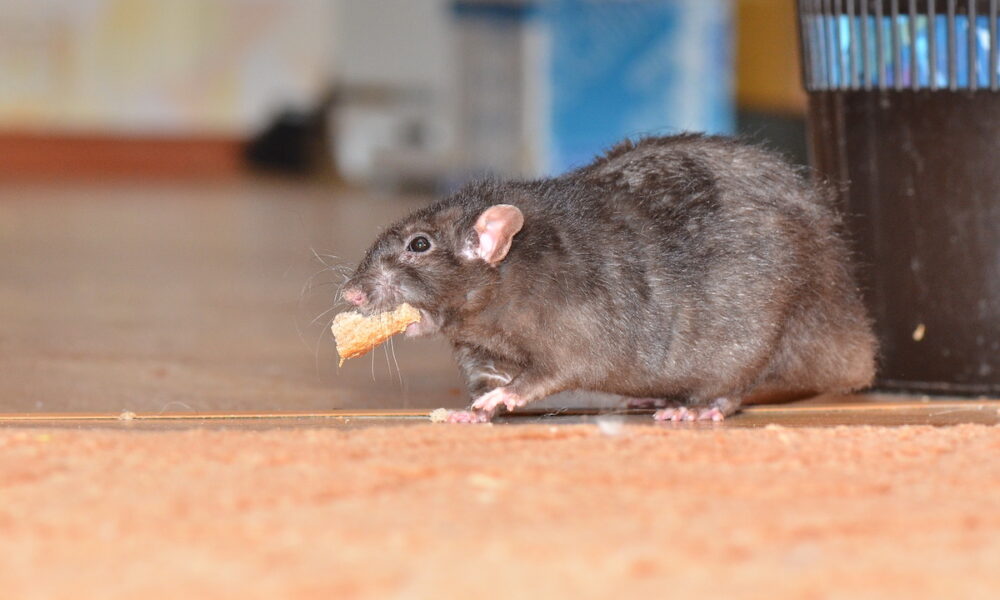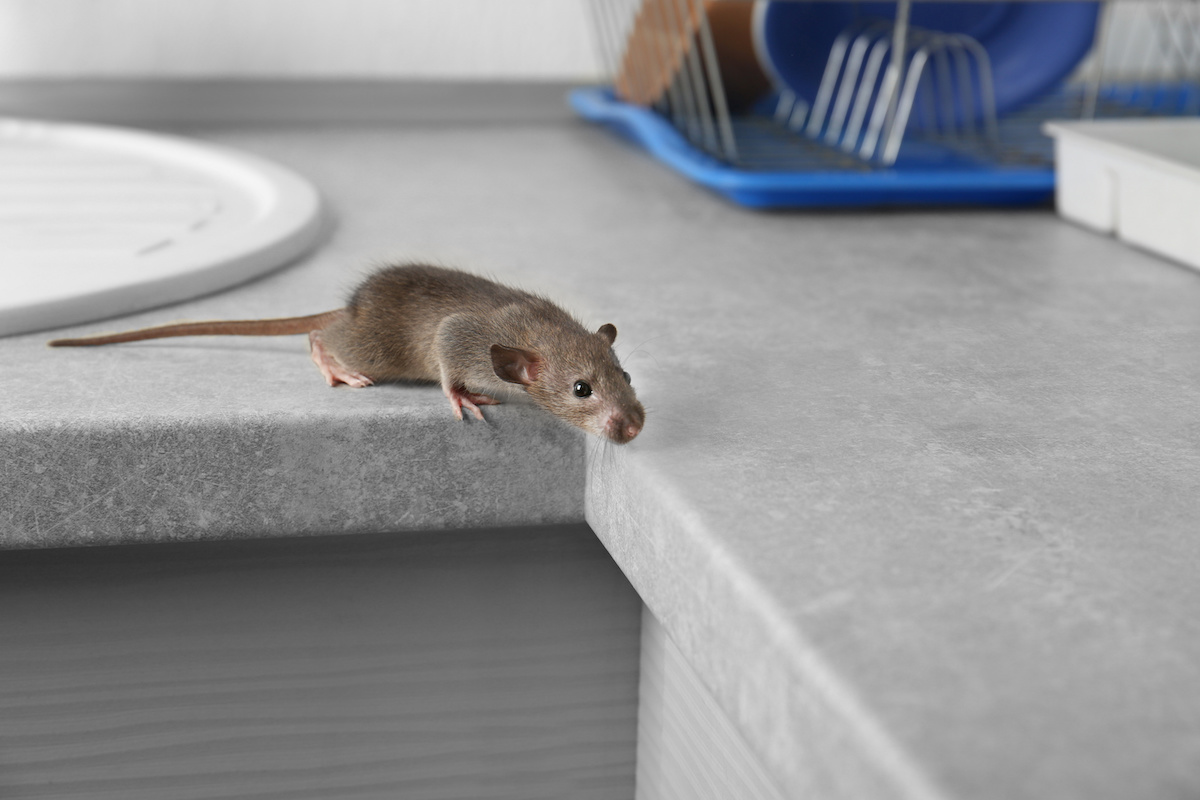
If you’re reading this, you’re likely grappling with some common Florida pests–rats! Yes, these sneaky creatures are an unwelcome surprise in your Florida home. But why do you have rats in your home in the first place? When you know why rats are setting up shop in your space, it’s easier to prevent and even get rid of them.
Why are rats so common here in Florida? First, let’s address the elephant, or should we say, the rat in the room. Rats, like many creatures (humans included!), are drawn to Florida’s warm climate. Meanwhile, Florida’s landscape provides an excellent habitat for these critters. So, it’s no surprise they might find their way into your home. If you are wondering why you have rats in your home, World Class Wildlife is here to help.
Why Do You Have Rats in Your Home?
Now, why exactly might rats choose your home over the great Florida outdoors? We have plenty of homeowners wanting to learn why do you have rats in your home? Here are a few reasons:
- Food: Rats are always on the lookout for food, and your home is an attractive buffet. Leftover food in trash cans, unsealed food containers, pet food, and even old fruit from your backyard trees is a feast for these rodents.
- Water: Florida’s climate is quite hot, and rats need water to survive. Leaky pipes, pet water bowls, or even a dripping air conditioning unit can attract rats.
- Shelter: Your cozy Florida home is an excellent refuge for rats, especially during rainy periods or the occasional cold snap. Attics, basements, garages, and wall cavities provide warm, safe spaces for rats to nest and breed.
- Access: Rats are skilled climbers and can squeeze through surprisingly small spaces. In fact, a rat only needs access to a 20MM hole to get into your house. Loose roof tiles, gaps in windows or doors, or cracks in your home’s exterior walls can provide easy entryways for rats.
Rat Species in Florida: Palm Rats, Wood Rats, and Norway Rats
As we venture deeper into the world of Florida’s rat species, you’ll come across a few characters here in the Sunshine State. World Class Wildlife is introducing the Palm rat, Wood rat, and Norway rat. These are three species commonly found throughout Florida homes.
Palm Rats (Roof Rats)
Palm rats, also known as Roof rats, are the most common type of rats found in Florida homes. They are called Palm rats due to their preference for nesting in palm trees. However, they’re equally comfortable nesting in attics, hence the name roof rat.
These rats are dark brown to black in color and have a lighter underbelly. They’re smaller than Norway rats, usually around 12-14 inches in length from head to tail. Being excellent climbers, they tend to nest in high places. Roof rats are also notorious for causing damage by chewing on electrical wires, ducts, and insulation.
Wood Rats (Pack Rats)
Wood rats, also known as Pack rats, are less common in urban areas. However, they can make their way into homes. They’re typically brown with a whitish underbelly and are about the same size as Palm rats.
These rats have a unique habit of collecting various objects and debris. They use the debris to build complex nests. They prefer woodland environments and also inhabit outbuildings, like barns or sheds.
Norway Rats (Brown Rats)
Norway rats, also known as Brown rats, are the largest of the species, with a robust body measuring up to 16 inches long. They have coarse brown or grayish fur. Unlike Palm rats, Norway rats are poor climbers and prefer to burrow in the ground.
They are more likely to nest in ground-level structures, like your garage. Norway rats are particularly problematic due to their prolific breeding and their ability to spread diseases.

What are the Signs of a Rat Infestation?
Identifying a rat problem early on is crucial to preventing extensive damage and potential health risks. If you’re unsure whether you have a rat infestation, here are some tell-tale signs to watch out for:
- Droppings: Rat droppings are a clear sign of an infestation. These pellets are often small, dark, and banana-shaped. You might find them in the kitchen, under the sink, in the attic, or near food packages.
- Scratching Noises: Rats are most active at night, so if you hear scratching noises in your walls, ceilings, or under the floor as you’re settling into bed, there might be a rat presence.
- Gnaw Marks: Rats have strong teeth that can chew through plastic and even metal. Look for gnaw marks on food packaging, wires, walls, or wooden structures.
- Nests: Rats build nests using soft materials like shredded paper, fabric, or plant matter. If you find any hidden clumps of these materials, especially in dark, secluded areas, it might be a rat nest.
- Footprints or Tail Marks: In dustier areas of your house, you might see tiny footprints or tail marks. To check, dust an area you suspect has rat traffic, and see if you can spot any new tracks the next day.
- Smell: Rats often leave a distinct, musky odor. If you notice an unexplained smell, particularly in confined areas, it could be due to a rat infestation.
- Pet Behavior: Our pets are often more aware of these little invaders than we are. If your dog or cat is unusually interested in a certain area, they might be onto something!
Rat-Proofing Your Florida Home
Why do you have rats in your home? One reason may be because you aren’t rat-proofing every nook and cranny. The good news is that you can take proactive steps to make your home less attractive to rats:
- Seal Your Food: Make sure your food containers are sealed, and clean up any food spills promptly. Regularly secure and dispose of your trash.
- Fix Leaks: Regularly check for and fix any leaks. Limit water access as much as you can.
- Seal Entry Points: Walk around your home and check for any potential entry points. Seal gaps in doors and windows, and repair any cracks in the walls.
- Maintain Your Yard: Regularly trim your trees and shrubs, and remove any fallen fruits or nuts promptly. Avoid piling up lumber or debris near your home, as it can serve as a shelter for rats.
Why Do You Have Rats in Your Home? Get Help from World Class Wildlife
Why do you have rats in your home? World Class Wildlife can help you get to the bottom of this common problem.
Our skilled exterminators specialize in residential rat removal, offering efficient and non-toxic solutions to ensure the safety of your home. We understand the urgency and will promptly address any infestation.
Meanwhile, we go the extra mile by sanitizing the affected areas after removal, giving you peace of mind. We believe that families shouldn’t have to fear the health risks posed by rats. Our services are tailored to create a rat-free environment for your household. With our residential rat removal service, you can enjoy a worry-free life, free from the menace of rats. Contact us now to get rid of rats in your home.
